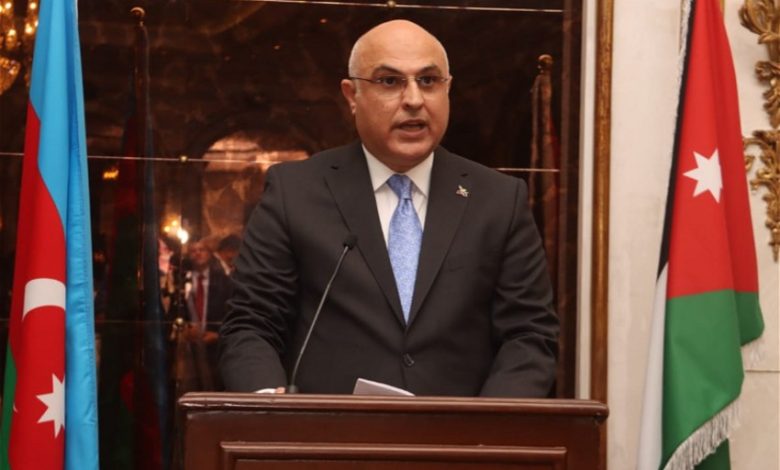
By : JD
Jordan Daily – Azerbaijan marked the 33rd anniversary of the Khojaly massacre on Wednesday, with nationwide mourning and renewed hope for the future as the country continues its reconstruction efforts in the Nagorno-Karabakh region.
On February 26, 1992, Azerbaijani civilians in the city of Khojaly were killed by Armenian forces during the Nagorno-Karabakh conflict. According to official figures, the massacre resulted in 613 deaths, including 63 children, 106 women, and 70 elderly people. Survivors fled through snow-covered forests but were reportedly killed near the village of Nakhchivan and the Askeran plain.
The government in Baku observes a national day of mourning each year on February 26. Public transportation in the capital halts, flags are flown at half-mast, and thousands of citizens visit the Mother’s Cry monument to lay wreaths and flowers in honor of the victims.
Azerbaijan’s armed forces reclaimed Khojaly during the 44-day war in 2020, which ended the decades-long Armenian occupation of the Karabakh region.
Ambassador Salimov noted that the city is now preparing to welcome back displaced residents following the liberation and extensive reconstruction. “The wise leadership of Azerbaijan has made decisive moves to regain its occupied territories,” Salimov said, referencing operations to restore full control of the region, including counterterrorism measures in September 2023.
Reconstruction efforts are underway in the Karabakh region, where the Azerbaijani government, under President Ilham Aliyev, is rebuilding infrastructure destroyed during the occupation. The government has focused on demining efforts and the development of “smart cities” to accommodate returning residents. New homes, schools, medical clinics, and administrative buildings are being built in Khojaly and the surrounding areas. “Modern infrastructure and housing are being developed in line with contemporary standards,” Salimov added.
The massacre has been recognized as genocide by several countries, including 18 states from the Parliamentary Union of OIC member states and 24 U.S. states. It was also recognized by the Organization of Islamic Cooperation (OIC), which classified the Khojaly events as genocide in 2009. In addition, an agreement between the OIC Youth Forum and ISESCO called for the inclusion of Khojaly in history curriculums in member countries. Salimov stressed the importance of global recognition, noting that atrocities committed in Khojaly mirrored those of World War I. “What happened in Khojaly in 1992 was a repeat of the same catastrophes that occurred during the First World War,” he said.
Jordan was one of the first Arab countries to recognize the Khojaly massacre, and has consistently supported Azerbaijan’s right in the Nagorno-Karabakh conflict, according to Salimov. He also highlighted Jordan’s Senate statement from 2013, which condemned the massacre, as well as Jordan’s support for United Nations Security Council resolutions 822, 853, 874, and 884, which call for Armenian forces to withdraw from occupied Azerbaijani territories.
Salimov concluded his statement by emphasizing the significance of the reconstruction of Karabakh and Azerbaijan’s future development. “Azerbaijan is now a developed country with a rapidly growing economy,” he said, adding that the government is encouraging foreign investments in areas such as tourism, agriculture, and carpet production. He also called for international cooperation to foster new opportunities in Karabakh, which is rich in natural resources but lacked development due to decades of occupation.
“Let the Azerbaijani people remember those martyrs who gave their lives for their homeland,” Salimov said. “Their memory will forever remain a testament to the sacrifices made for victory.”

